Event Archive
For the past year, we’ve successfully conducted a series of virtual events, featuring renowned professionals specializing in conservation, sustainable development, demography, and reproductive rights. These events are conducted via Zoom, where informative presentations are accompanied by interactive Q&A sessions. During these sessions, members have the opportunity to engage with the speakers directly by submitting their questions in real-time through the chat box.
Feel free to delve into the provided links below to access presentation recordings, presentation slides, and speaker biographies for further information!
Education and Empowerment: How One School in Kenya is Helping Maasai Girls Find their Voice
At Nasaruni Academy, Maasai girls experience the life-changing impact of education. They can dream about—and actively seek—their own futures of new opportunities. They delay early marriage and are able to look forward to independent, fulfilling lives. With the support of our donors, we’ve been able to serve as a partner to the Nasaruni Academy, helping provide scholarship opportunities for students to attend the school.
Presentation Date: December 9th, 2022
More Details Here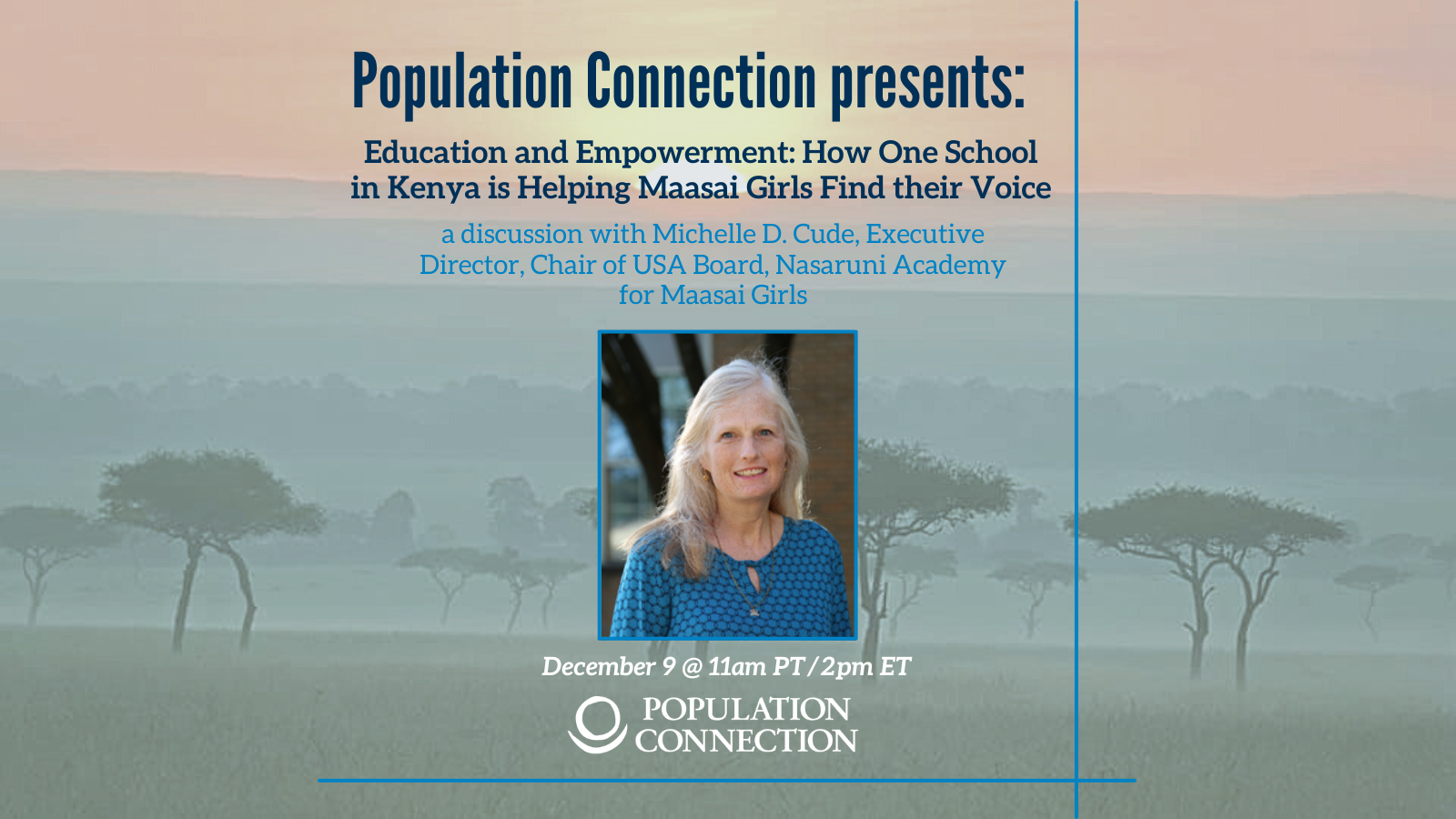
![]()
A Demographic Milestone: Reporting on the 8 Billion Mark
We heard from our Communications Team for an interactive session where we discussed key takeaways from the UN’s latest report and shared resources such as an op-ed writing guide, blog posts, and tips on talking with others about population issues.
Presentation Date: November 2nd, 2022
More Details Here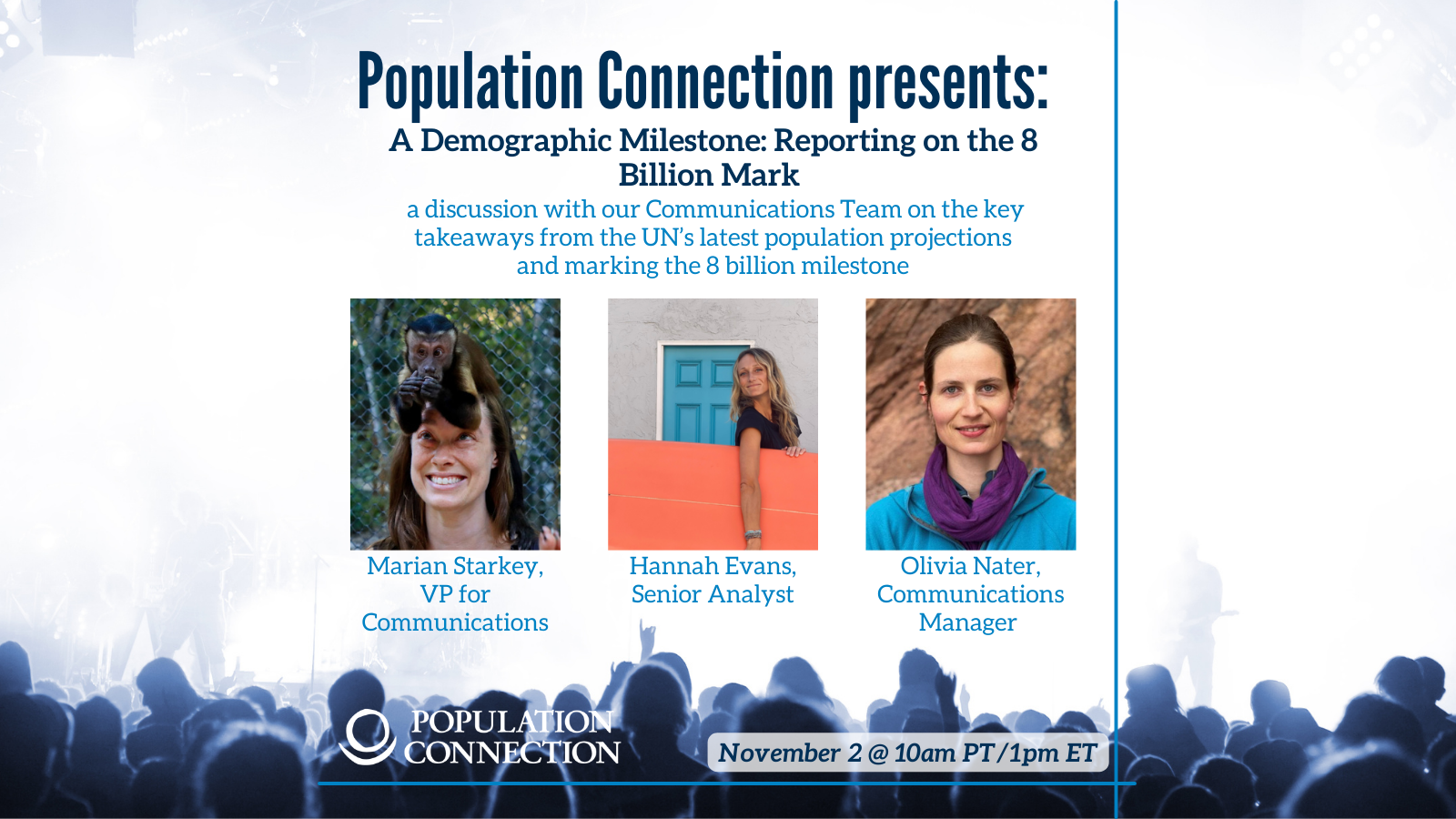
![]()
Youth Voices on Reproductive Rights and Environmental Sustainability in a World of 8 Billion
We partnered with YUWA, a youth-run organization working to promote youth participation through empowerment and advocacy. We learned about the state of SRHR in Nepal, along with the work that YUWA does to improve the status of SRHR for young people. The youth presenters also touched on YUWA’s active citizenship department’s recent engagement in climate and environmental issues in their community.
Presentation Date: October 26th, 2022
More Details Here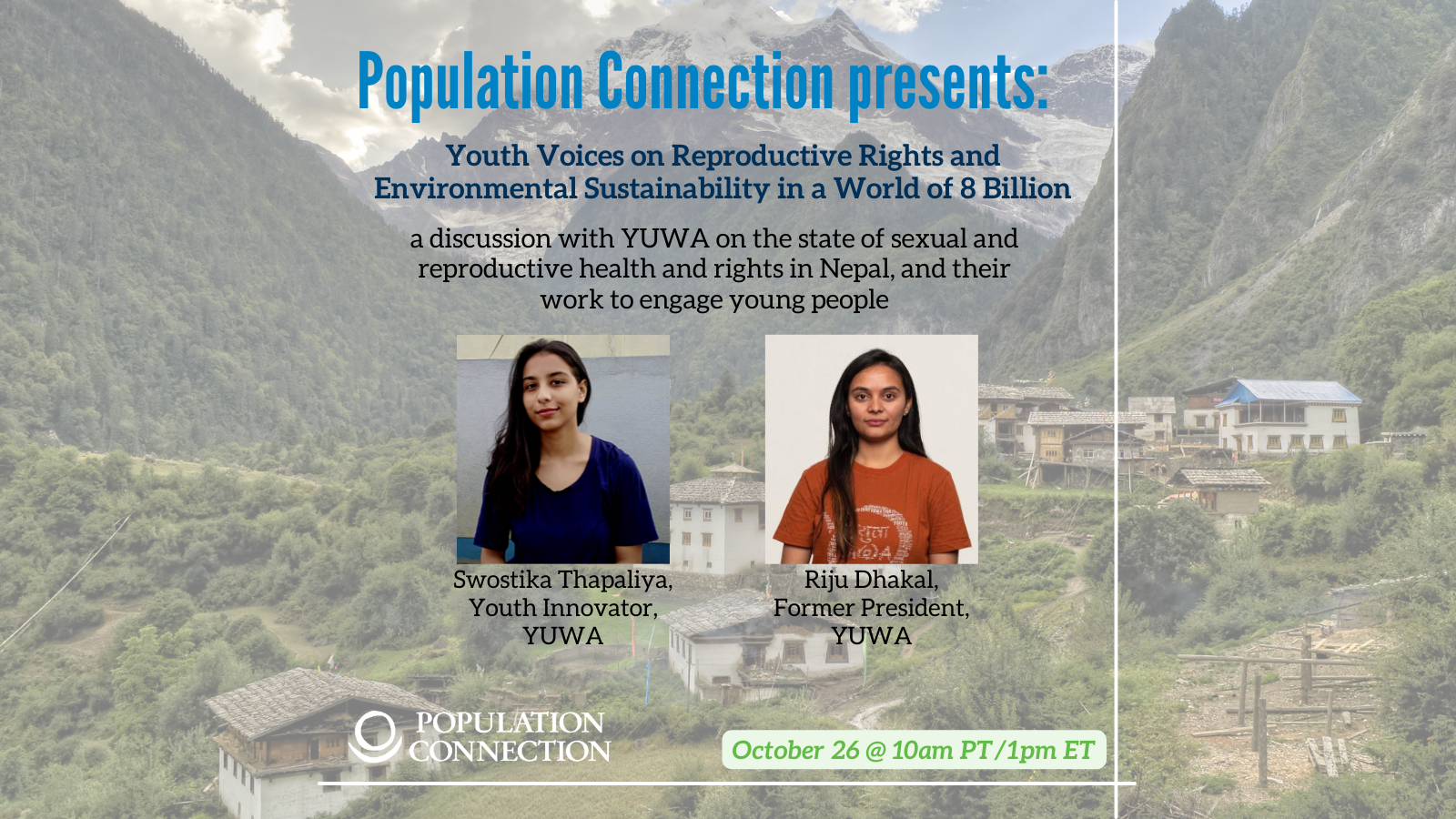
![]()
Marking 8 Billion in the Classroom with Population Education
Educators everywhere are looking for resources to teach about the 8 billion milestone in their classrooms. Join the Population Education team to see how we are supporting them!
In this session, we explored the brand new World of 8 Billion student video contest and popular activities that teachers use with students to dive into demographics and the future of our planet.
Presentation Date: October 20th, 2022
More Details Here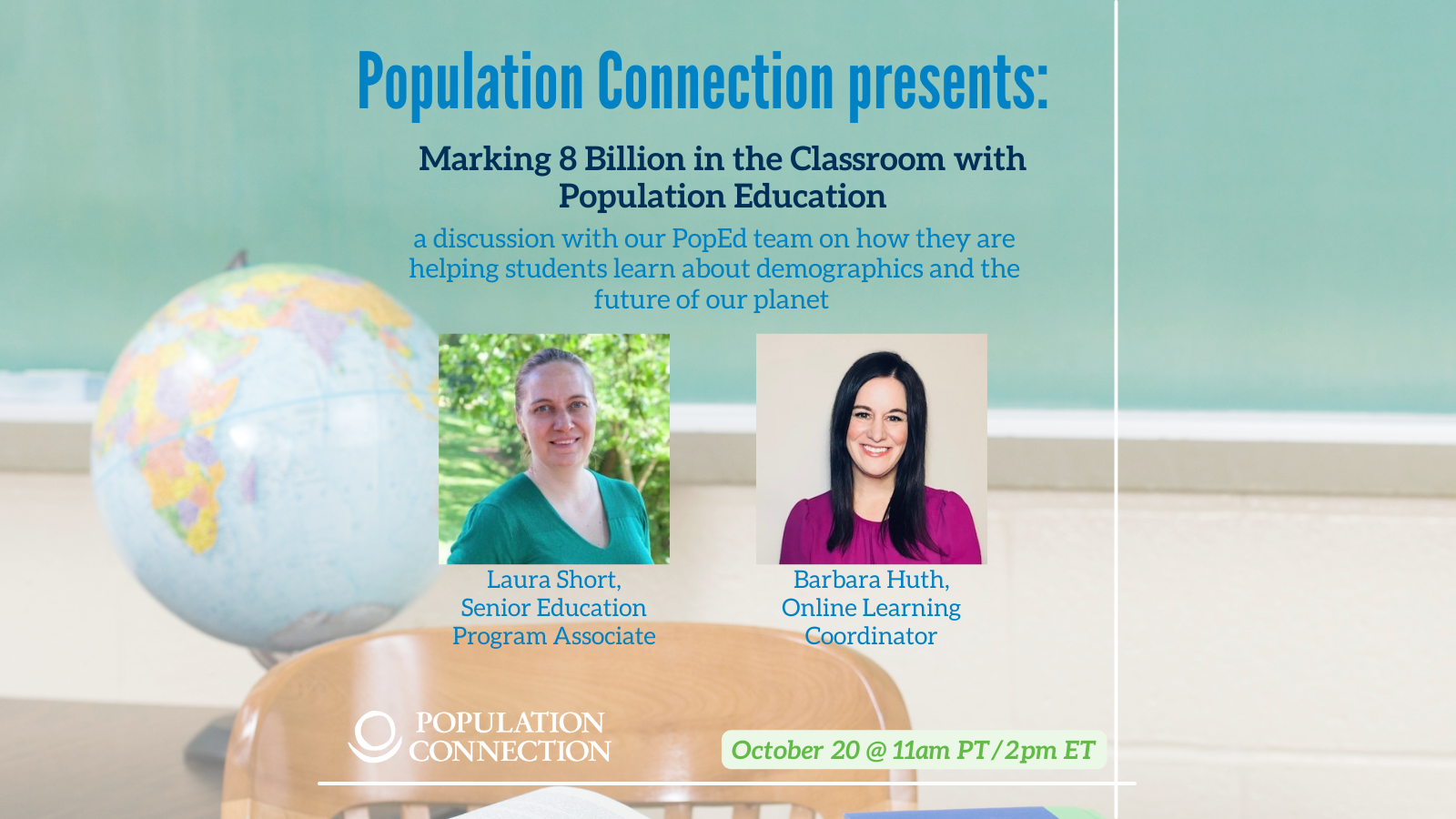
![]()
Moving the Needle: Realizing Girls’ Rights Through Holistic, Community-Driven Programming
How can we leverage the inherent power of girls and young women when existing in and navigating patriarchal structures?
In keeping with this year’s International Day of the Girl theme, “Our time is now—our rights, our future,” grassroots movement leader Monica Nyiraguhabwa dove into the work her organization, Girl Up Initiative Uganda, is doing to support the autonomy of girls through educational opportunities, economic empowerment, and youth engagement initiatives in Kampala, Uganda.
Presentation Date: October 14th, 2022
More Details Here
![]()
Meeting Feminine Health Needs in Sub-Saharan Africa
To mark this year’s World Contraception Day, we hosted Asonele Kotu, Founder of FemConnect, a digital platform making access to a variety of reproductive health services more convenient for women in South Africa. During her presentation, she discussed the importance of creating easier access to family planning through the use of digital platforms to overcome challenges faced by developing countries.
Presentation Date: September 29th, 2022
More Details Here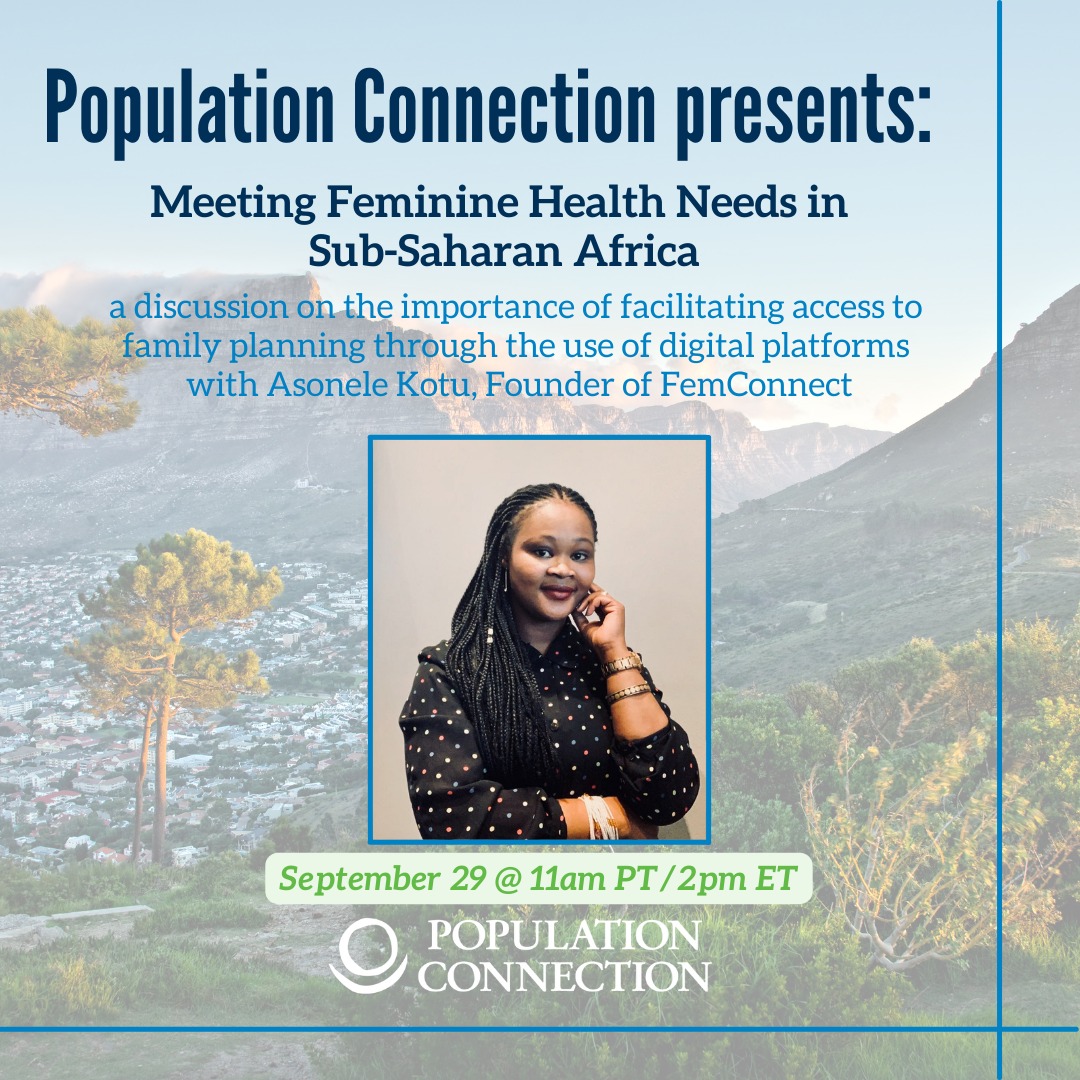
![]()
Connecting the Dots Between Women's Empowerment and Critical Biodiversity Protection
During this event we’ll hear from Sara Inés Lara, Founder and Executive Director of Women for Conservation, who will share how the organization’s programs work to protect and preserve endangered wildlife and their habitats.
Presentation Date: August 25th, 2022
More Details Here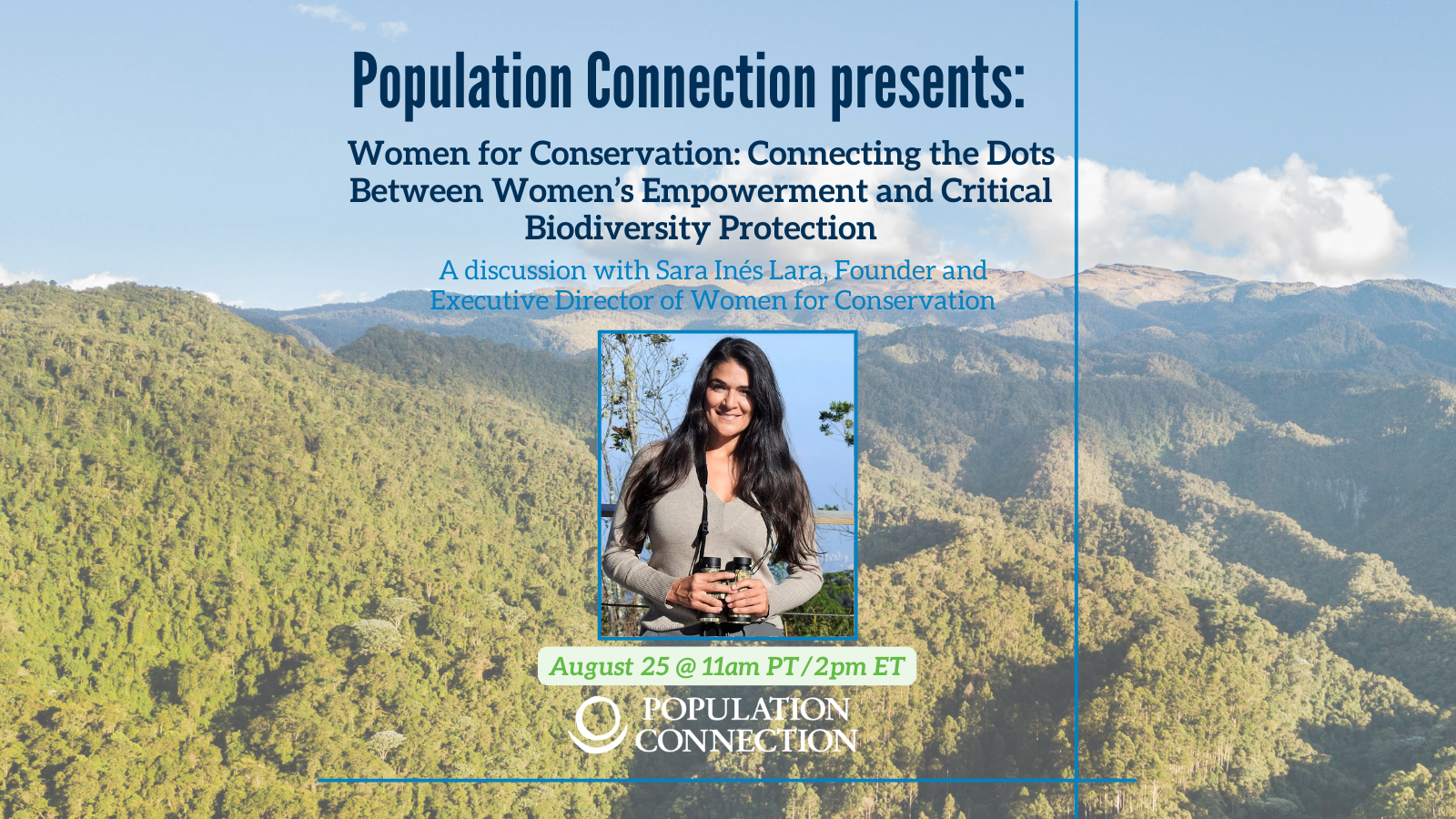
![]()
Pronatalism and Rapid Population Growth: Challenging the Social Pressures to Have Children
In this presentation, Executive Director of Population Balance Nandita Bajaj discusses her work on one of the main drivers of unsustainable population growth: pronatalism.
Presentation Date: July 13th, 2022
More Details Here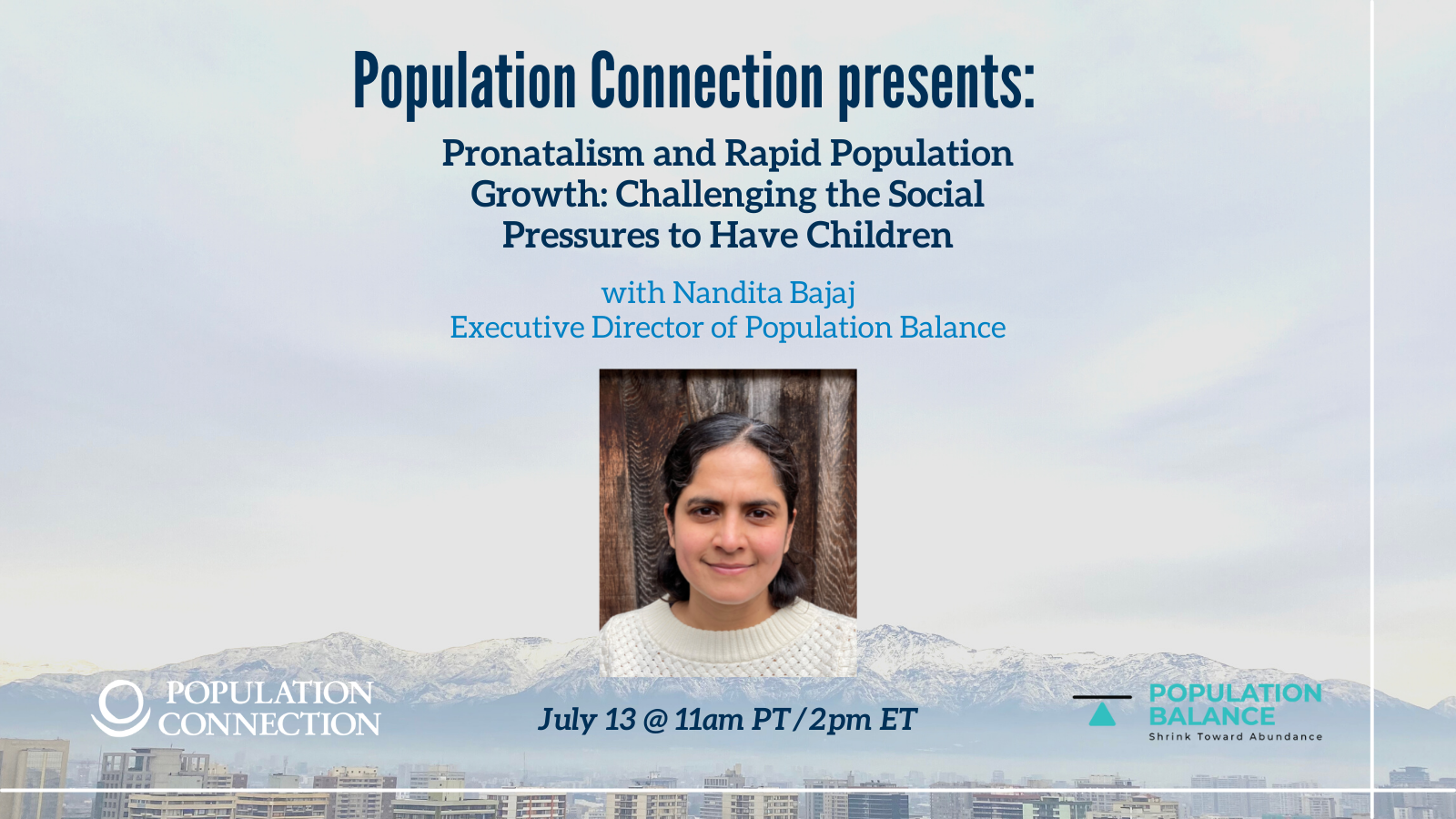
![]()
Only One Earth: Creating Lasting Solutions for Human and Planetary Well-being
We heard from Population Connection’s Senior Analyst Hannah Evans and Joshua Mirondo, Project Associate for Transition Earth on reproductive rights, climate justice, and sustainable development.
Presentation Date: June 7th, 2022
More Details Here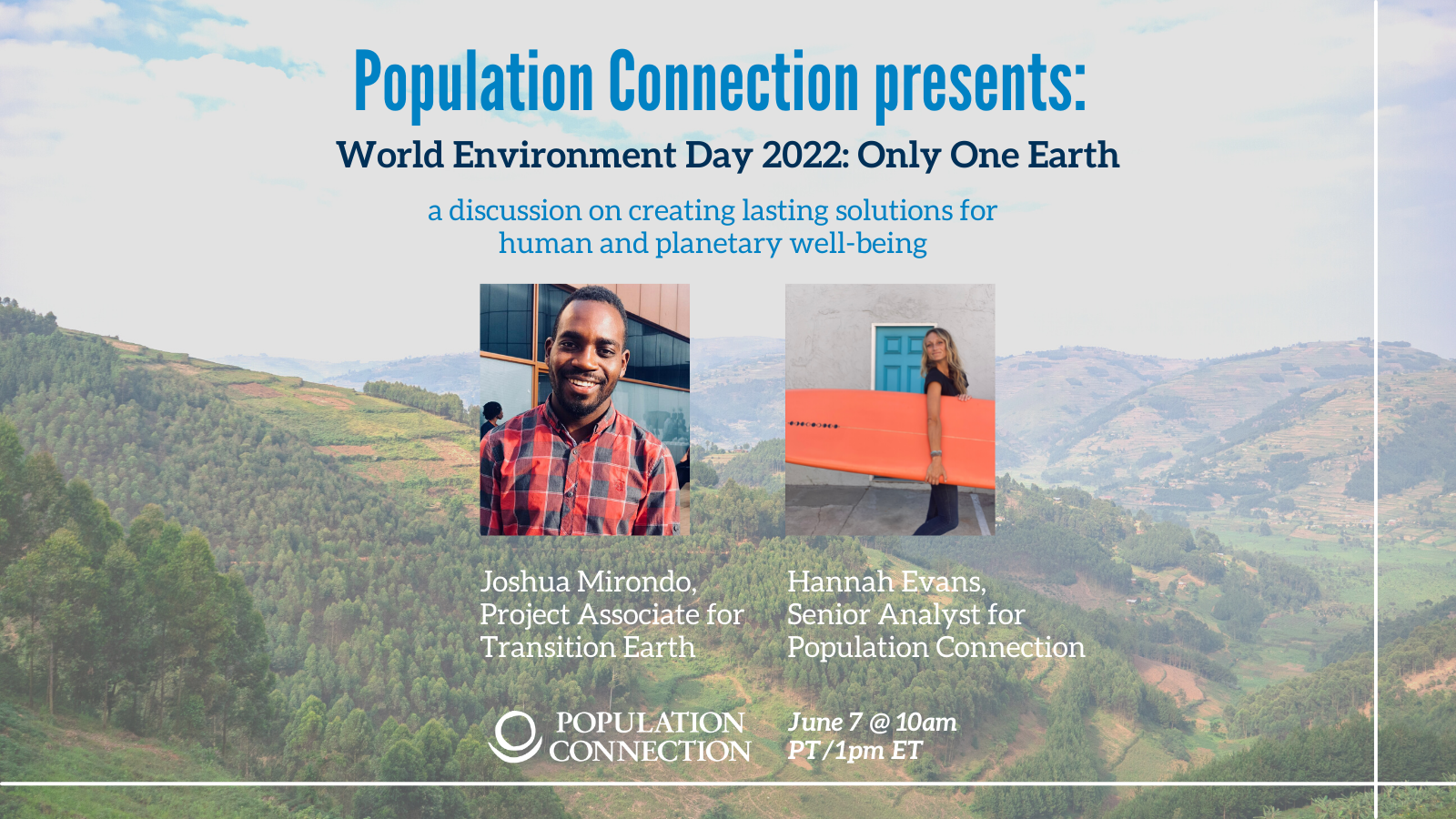
![]()
Population and the Environment
In honor of Earth Day, this session of our Demography Series used a human-rights approach to highlight some of the major links between population growth and the environment, specifically in terms of climate change.
Presentation Date: April 20th, 2022
More Details Here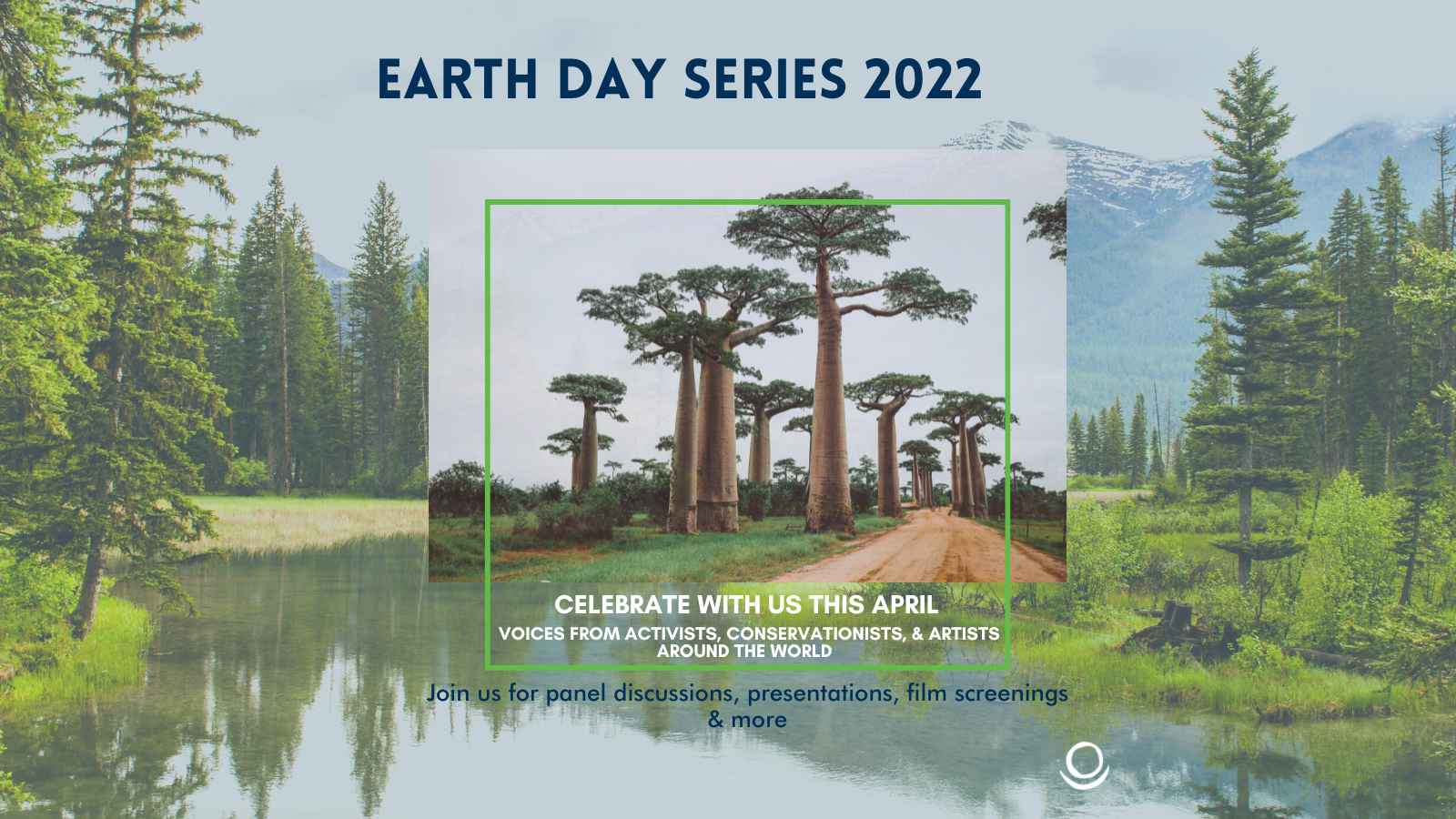
Lemurs, Women, and Science
In this presentation we hear from the Founder and on-the-ground director of Lemur Love about how their organization is protecting biodiversity, supporting development, and increasing capacity in Madagascar’s next generation of conservationists.
Presentation Date: April 13th, 2022
More Details Here
The Singing Planet
After an on-demand screening of The Singing Planet, we sit down with the filmmaker Liz McKenzie, natural sounds recordist Hank Lentfer, and Population Connection VP for Communications Marian Starkey for a panel discussion.
Presentation Date: April 8th, 2022
More Details Here
![]()
Demography Series
This spring we hosted our Hannah Evans, our Senior Analyst for monthly educational sessions that explored the various ways in which human population trends and dynamics affect global sustainable development and environmental change.
Presentation Date: March to June 2022
More Details Here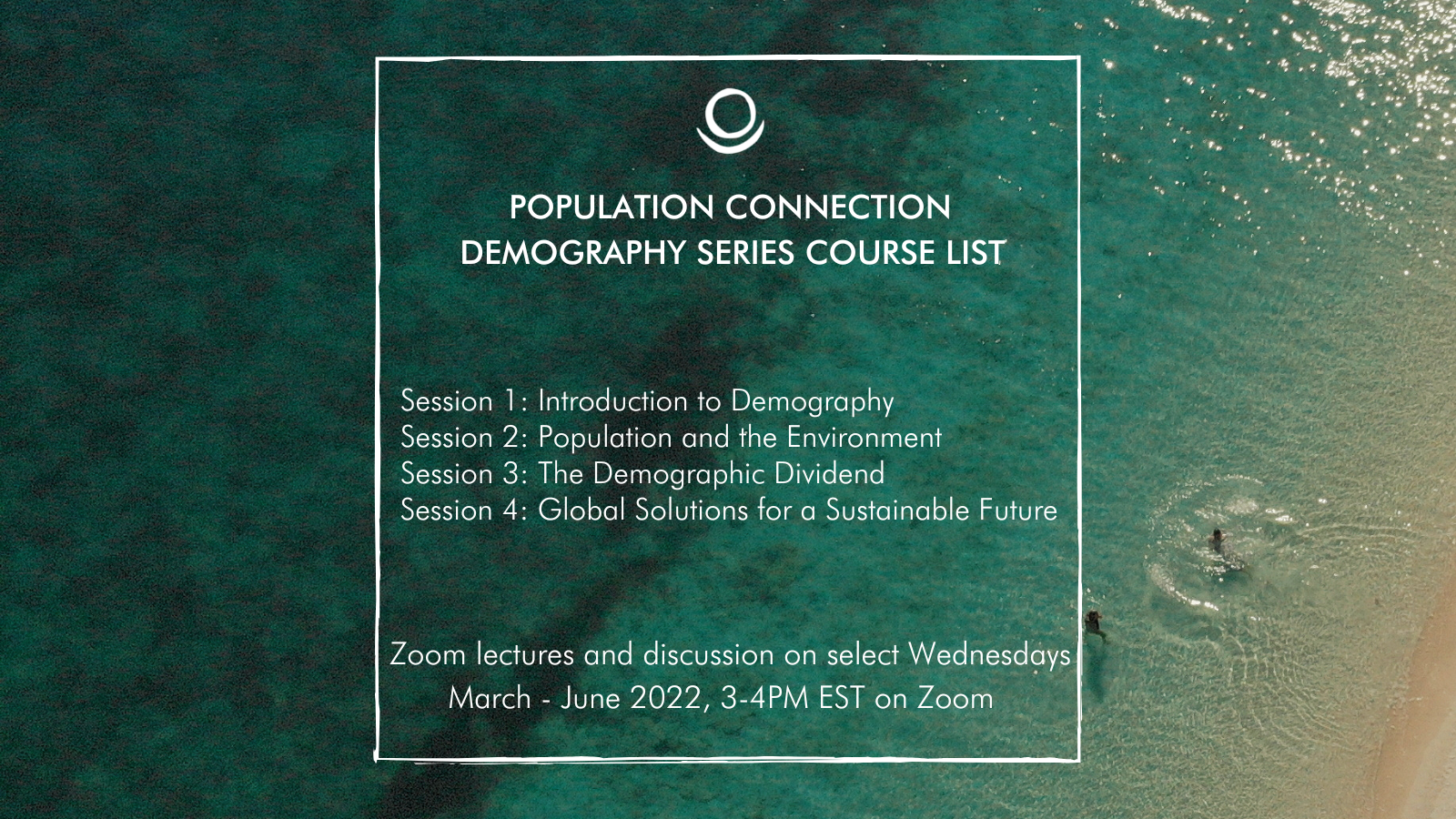
![]()
Glaring Emissions: Linking Rapid Population Growth and Climate Change
Population Connection President and CEO, John Seager discusses the importance of looking at demographic trends to address and mitigate climate impacts as we near a global population of 8 billion people.
Presentation Date: February 23rd, 2022
More Details Here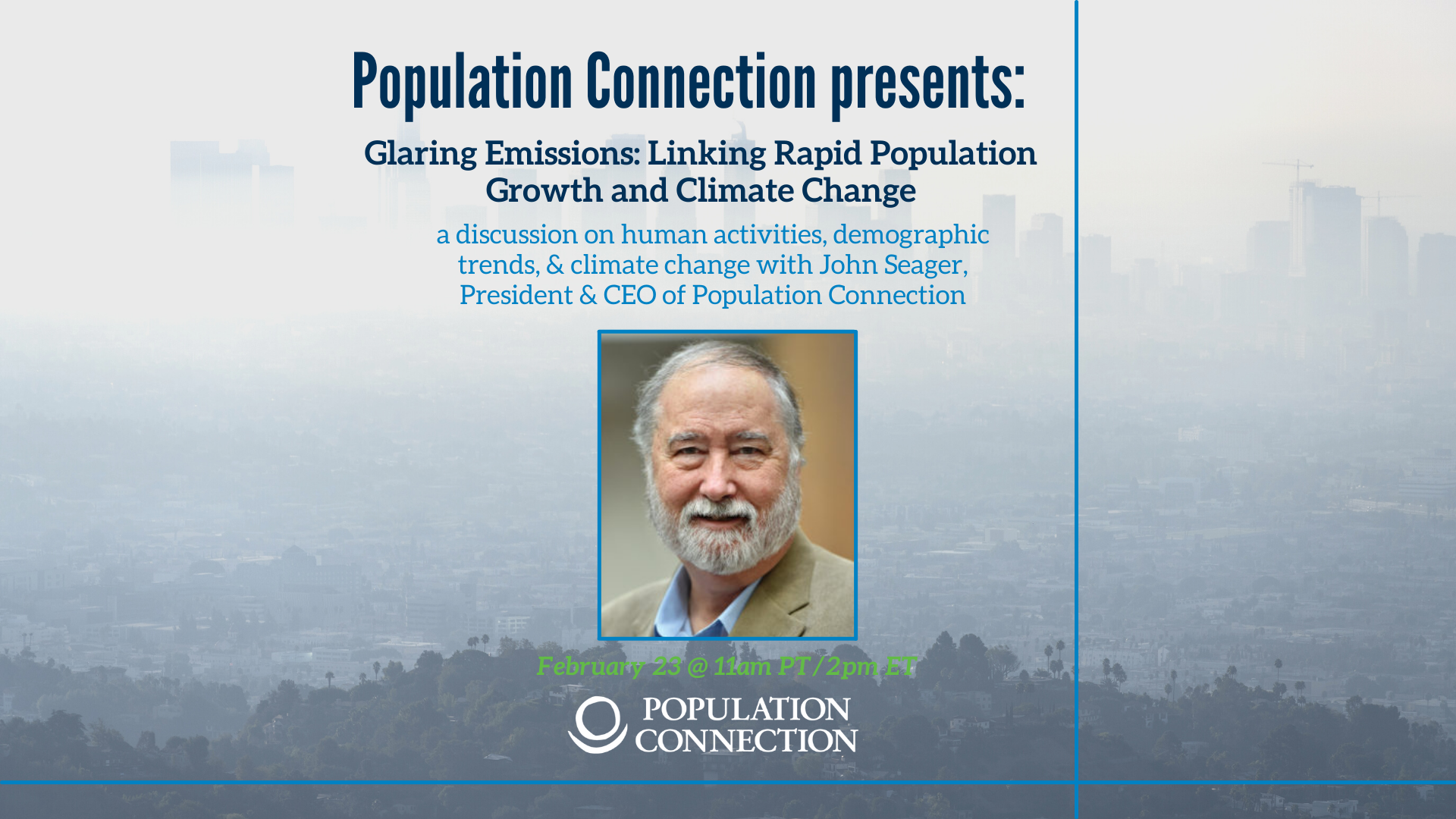
![]()

